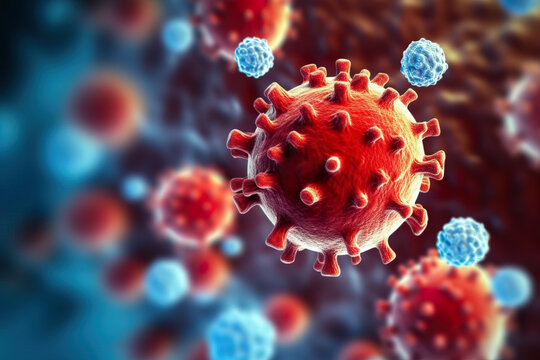A strong immune system is your body’s first line of defense against infections, viruses, and chronic diseases. While a balanced diet, exercise, and sleep are crucial, supplements can provide additional support by filling nutritional gaps. Here’s a list of 10 scientifically-backed supplements to enhance your immunity.
Table of Contents
Toggle1. Vitamin C
Vitamin C is a powerful antioxidant that helps stimulate the production of white blood cells, which are essential for fighting infections. It also reduces inflammation and improves skin barriers against pathogens.
🔹 Best Sources: Citrus fruits, bell peppers, and strawberries
🔹 Recommended Dose: 500–1,000 mg per day
2. Vitamin D
Vitamin D plays a crucial role in immune cell function and helps the body fight respiratory infections. Many people have a deficiency, especially those who get limited sun exposure.
🔹 Best Sources: Sunlight, fortified dairy products, mushrooms
🔹 Recommended Dose: 1,000–4,000 IU per day
3. Zinc
Zinc supports immune cell production and helps reduce the severity of colds by shortening cold symptoms by 33%. It also plays a role in wound healing and reducing inflammation.
🔹 Best Sources: Pumpkin seeds, lentils, chickpeas
🔹 Recommended Dose: 8–11 mg per day
4. Probiotics
A healthy gut microbiome is essential for immune function. Probiotics help balance gut bacteria, which in turn enhances immunity and reduces inflammation.
🔹 Best Sources: Yogurt, kefir, fermented foods
🔹 Recommended Dose: 1–10 billion CFUs daily
5. Vitamin E
Vitamin E is a potent antioxidant that protects immune cells from oxidative damage. It supports the production and activity of T-cells, which are crucial for fighting infections. Hence, it helps balance immune response and reduce chronic inflammation.
🔹 Food Sources: Nuts (almonds, hazelnuts), seeds (sunflower seeds), spinach, and avocado.
🔹 Recommended Dose: 1,000 mg (1,500 IU) per day from supplements (Excess can increase bleeding risk).
6. Magnesium
Magnesium is essential for activating immune cells (T-cells, B-cells, and macrophages) and it helps control excessive inflammatory responses linked to chronic diseases. It is also needed for the synthesis of antibodies that fight infections.
🔹 Food Sources: Leafy greens (spinach, kale), nuts (almonds, cashews), seeds (pumpkin seeds), whole grains.
🔹 Recommended Dose: 350 mg per day
7. Curcumin (Turmeric Extract)
Curcumin, the active compound in turmeric, has anti-inflammatory and immune-boosting properties. It enhances the activity of white blood cells.
🔹 Best Sources: Turmeric spice, curcumin supplements
🔹 Recommended Dose: 500–1,000 mg per day with black pepper for better absorption
8. Garlic Extract
Garlic contains allicin, a potent antimicrobial that boosts immune response and reduces the risk of colds and flu.
🔹 Best Sources: Fresh garlic, garlic supplements
🔹 Recommended Dose: 600–1,200 mg per day
9. Omega-3 Fatty Acids
Omega-3s support immune cell function and reduce inflammation, which helps the body fight infections effectively.
🔹 Best Sources: Flaxseeds, chia seeds, walnuts
🔹 Recommended Dose: 250–500 mg of EPA/DHA daily
10. Selenium
Selenium is an essential mineral that enhances antioxidant defenses and protects against infections.
🔹 Best Sources: Brazil nuts, whole grains
🔹 Recommended Dose: 55 mcg per day
Final Thoughts
A strong immune system requires a balanced approach—good nutrition, lifestyle habits, and the right supplements. Including these 10 powerful immune boosters in your daily routine can help you stay healthy and resilient against illnesses.
✅ Tip: Always consult a doctor before starting new supplements, especially if you have underlying health conditions.
💬 Do you take any of these supplements? Let us know in the comments!
References
-
Carr, A. C., & Maggini, S. (2017). Vitamin C and immune function. Nutrients, 9(11), 1211.
-
Martineau, A. R., Jolliffe, D. A., Hooper, R. L., Greenberg, L., Aloia, J. F., Bergman, P., … & Griffiths, C. J. (2017). Vitamin D supplementation to prevent acute respiratory tract infections: systematic review and meta-analysis of individual participant data. British Medical Journal, 356, i6583.
-
Wessels, I., Maywald, M., & Rink, L. (2017). Zinc as a gatekeeper of immune function. Nutrients, 9(12), 1286.
-
Hemarajata, P., & Versalovic, J. (2013). Effects of probiotics on gut microbiota: Mechanisms of intestinal immunomodulation and neuromodulation. Therapeutic Advances in Gastroenterology, 6(1), 39–51.
-
Meydani, S. N., Han, S. N., & Wu, D. (2005). Vitamin E and immune response. The American Journal of Clinical Nutrition, 81(1), 112S-119S.
-
Tam, M., Gómez, S., González-Gross, M., & Marcos, A. (2003). Possible roles of magnesium on the immune system. European Journal of Clinical Nutrition, 57(10), 1193-1197.
-
Kunnumakkara, A. B., Bordoloi, D., Padmavathi, G., Monisha, J., Roy, N. K., Prasad, S., & Aggarwal, B. B. (2017). Curcumin, the golden nutraceutical: Multitargeting for multiple chronic diseases. British Journal of Pharmacology, 174(11), 1325–1348.
-
Ried, K. (2016). Garlic (Allium sativum) and cardiovascular disease: A review of the evidence. Clinical Nutrition, 35(1), 50–60.
-
Calder, P. C. (2013). Omega-3 polyunsaturated fatty acids and inflammatory processes: Nutrition or pharmacology? British Journal of Clinical Pharmacology, 75(3), 645–662.
-
Rayman, M. P. (2012). Selenium and human health. The Lancet, 379(9822), 1256–1268.

Akanksha Sharma
Dr. Akanksha Sharma, Head Writer and creator of AtoZ of Pregnancy, is dedicated to empowering women, parents, and families through 360-degree knowledge. She and her team provide evidence-based advice to guide families through pregnancy, parenting and beyond.






